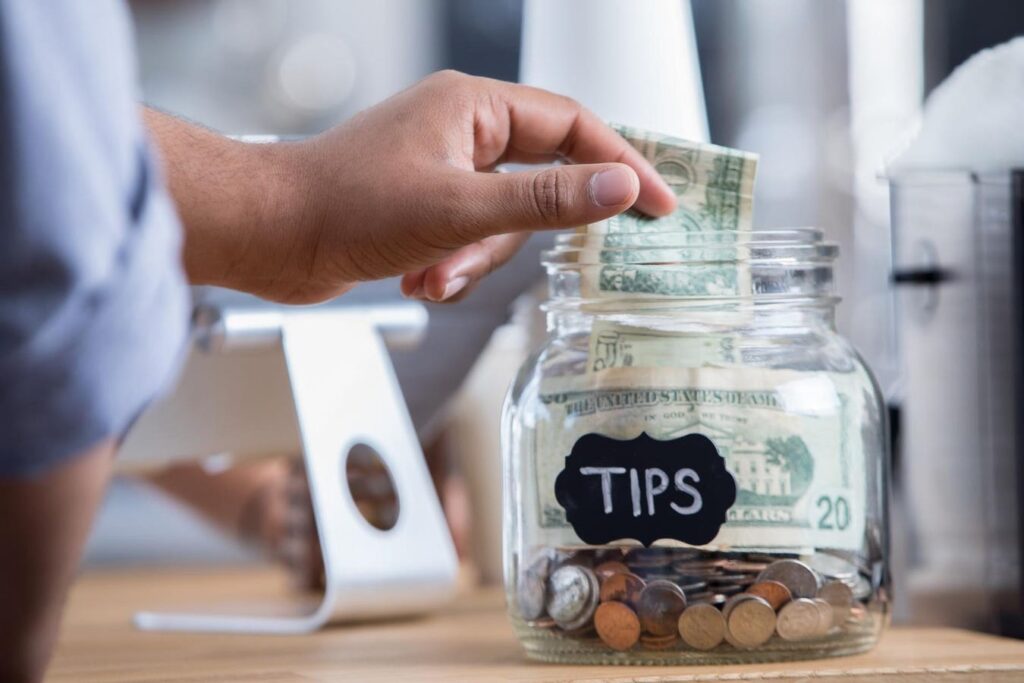Tax Notes contributing editors Robert Goulder and Joseph J. Thorndike examine former President Trump’s and Vice President Harris’s proposals to exempt tips from the federal income tax, all in five minutes.
This transcript has been edited for clarity.
Robert Goulder: Hello, I’m Bob Goulder, contributing editor with Tax Notes. The presidential election is approaching fast, and both candidates have endorsed the idea of exempting tips from the federal income tax. Now, that’s bound to be a popular idea with a certain segment of the labor force, but is it good for the country as a whole? Is it good policy?
To help us make sense of this, I’m joined by Joe Thorndike, contributing editor with Tax Notes. Joe, as you well know, the Internal Revenue Code defines gross income as income from whatever source derived, and that clearly includes tips and gratuities. So what is the policy argument for changing the rule?
Joseph J. Thorndike: Well, honestly, Bob, there is no policy argument for changing the rule, or at least no good argument. But let’s give it a shot. So basically the rationale, such as it is, hinges on the idea that tipped workers, they just deserve a break.
Both candidates make this sort of argument all the time, but let’s use Trump’s words to get us started here. He says, “When I get to office, we are going to not charge taxes on tips. You do a great job of service, you take care of people, and I think it’s going to be something that really is deserved.”
Now, when people say, “people making tips,” when the candidates say that, they really mean people working in the service industries like restaurants and hotels and places where regular wages are typically pretty low, though not always.
Robert Goulder: Well, is that a new idea? Just that these folks deserve a break?
Joseph J. Thorndike: Yes and no. How about that? Creating a new tax break just for tipped workers, that’s new. But the taxation of tips has been the subject of a lot of debate for a long time, mostly because policymakers thought that tipped workers were skipping out on their real tax burden. The income tax on tips had been poorly enforced for decades, and Congress tried a couple of times to crack down.
So one time was, like, in the 1980s, when I happened to be working at a restaurant. The waiters at Allen’s Clam House, they were very angry about the IRS cracking down on tips because decades of slack enforcement had convinced them that they deserve to underpay. So it was a tradition. Basically that poor enforcement had bred serious disrespect for the law, or at least a misunderstanding of it.
Robert Goulder: Well, what’s wrong with that? Why not take that and just roll with it?
Joseph J. Thorndike: Well, lots of things are wrong with that, but at least four big things. So first, lots of people need a tax break, not just tipped workers, like retail clerks and fast food workers and people who work at dry cleaners, to name just a few that the government keeps track of. You know, low-paid industries. Don’t these people deserve some sort of tax break too? Of course they do.
Second big problem: Lots of tipped workers, they won’t get any help from the Trump and the Harris proposals. About a third of them, they don’t earn enough money in a year to pay income taxes in the first place, so they get nothing. Also, it’s possible that employers might decide that not taxing tips means that they can lower the regular wages that they’re already paying these tipped workers. So in that case, people getting tips, they’re going to get something from the tax break, but they’re going to lose something from their already small paychecks.
All right, number three: Carving out special treatment for one kind of income, that can lead to lots of game playing. Consider this Trump plan in particular, because unlike the Harris version, it doesn’t seem limited to workers in certain industries; it could apply to everyone. If we exempt all tips from taxation, then maybe the doctors and the lawyers are going to decide that they won’t charge hourly fees and just get paid in big, untaxed tips. Their clients and their patients, they’re not going to care.
And fourth, the last big problem: This tax break would be expensive, at least $100 billion over ten years, maybe $200 billion, maybe even more. We don’t really know because all those numbers are big and they get bigger if the lawyers and the doctors and everyone else starts playing games.
And every big tax break makes other tax breaks harder. So if we give a new benefit to tipped workers, that might actually deprive non-tipped workers of their own tax benefit.
Robert Goulder: Joe, those are all good reasons not to be doing this. So then if there’s no policy justification, why are both candidates talking about this?
Joseph J. Thorndike: Well, I know that this will shock and outrage you, Bob, but this is vote buying at its most obvious. The plan is designed to win the votes of people working in the hospitality industry, and especially the ones who live and work in Nevada.
It’s no accident that both Harris and Trump announced their plans for this tip tax break while speaking in Las Vegas. Those two, they don’t agree on much, but they do both understand that Nevada is a swing state and in a close election year, Nevada’s six electoral votes, they could make the difference between winning and losing.
Robert Goulder: So it’s politics. There you have it. Everything you wanted to know about exempting tips from the federal income tax. Thank you, Joe, and thank you for watching.
Read the full article here
